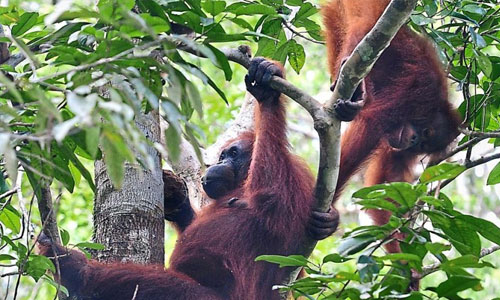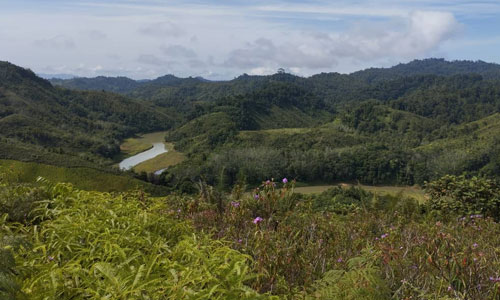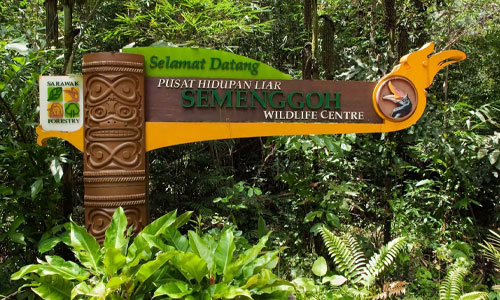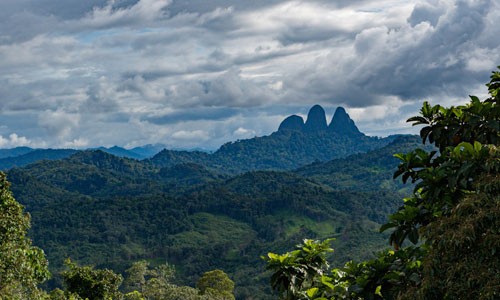The Sarawak forestry corporatisation project remains one of GG International’s most significant institutional reform assignments in Asia. It demonstrated the firm’s ability to align governance innovation with global sustainability agendas while delivering measurable commercial and environmental results.
By unlocking the potential of forestry through structural reform, GG International not only helped Sarawak secure its forests—but also its future.
— Sarawak, Malaysia —
certification. transformation. governance.








Sovereign Forests: Restructuring Sarawak’s Forestry for Sustainability and Global Markets
“Reform is never about the forest alone—it is about securing the future of the people who depend on it.”
— Hon. Lockwood Smith, Former New Zealand Minister of Trade, on GG International’s commendation
Challenge
Sarawak’s forestry sector was vital to the state economy but increasingly vulnerable to international scrutiny. Exporters and government officials alike recognized that without certification of sustainable practices, access to major timber markets in Europe, North America, and parts of Asia could be jeopardized. Certification was not merely a technical requirement but a market necessity.
The core institutional problem was that the existing government department lacked the agility, accountability, and technical capacity to align with evolving international sustainability standards. In addition, the absence of a modern corporate governance structure hampered innovation and performance oversight. The need for a transformational shift was urgent.
The Sarawak Government sought to restructure the Forestry Department into a state-owned corporation that could operate with commercial flexibility, manage forest resources sustainably, and meet stringent certification benchmarks. GG International was tasked with delivering a comprehensive strategy and implementation roadmap to enable this transformation.
Strategy
Over a two-and-a-half-year period (April 1998 to September 2000), GG International deployed a multidisciplinary team led by Shaan Stevens (Project Director), Chris Simcock (Senior Financial Analyst), and John Third (Senior Strategy Advisor), supported by the Forest Research Institute of New Zealand and Dr. Angus McPherson. The team adopted a phased, participatory approach built on local engagement, empirical fieldwork, and international best practices.
Key strategic interventions included:
- In-Depth Field Assessments: Evaluation of departmental operations, staffing, financial systems, and sustainability initiatives across forest zones.
- Design of a Corporatisation Model: Legal, financial, and operational frameworks were created to transition the department into a commercially oriented state-owned corporation. This model included performance indicators, revenue reinvestment mechanisms, and governance protocols.
- Policy and Legislative Drafting: New legislative instruments were recommended to formalise corporatisation and enable the transition of assets, staff, and oversight mechanisms.
- Certification Readiness: Development of pathways for achieving sustainable forest management certification, including alignment with Forest Stewardship Council (FSC) and equivalent standards.
- Stakeholder Engagement: Extensive consultations with indigenous groups, timber licensees, NGOs, and regional stakeholders to build consensus and mitigate social risk.
- Capacity Building: Training and support for public officials to manage the new corporate structure, including budgeting, licensing, auditing, and environmental monitoring.
- Financial and Economic Modelling: Simulation of revenue projections under various commercial and sustainability scenarios to ensure long-term viability of the corporatised entity.
The result was a robust and context-specific blueprint that could be immediately implemented by the Sarawak State Government.
Transformation
GG International’s work culminated in a policy framework and implementation plan that would serve as the basis for the eventual formation of the Sarawak Forestry Corporation (SFC). The plan redefined how forestry could be managed—not merely as a state function but as a professional, accountable, and adaptive enterprise.
Key outcomes included:
- Certification Readiness: The project delivered a roadmap that allowed Sarawak to begin aligning its forest management practices with globally accepted sustainability standards. This safeguarded access to export markets while reinforcing environmental stewardship.
- Commercial Flexibility: The corporatised model empowered the new entity to operate with the efficiency and responsiveness of a commercial business—without compromising public ownership or environmental obligations.
- Revenue Integrity: With strengthened systems and oversight, Sarawak was positioned to maintain and enhance its USD 1 billion per annum royalty income while ensuring these revenues were better managed and transparently allocated.
- Strategic Influence: Sarawak emerged as a regional leader in forestry sector reform. Its experience became a reference point for other jurisdictions in Southeast Asia facing similar challenges.
- International Recognition: The project’s innovation and impact earned GG International a formal commendation by the New Zealand Minister of Trade, recognizing it as a benchmark in service export and international development consultancy.